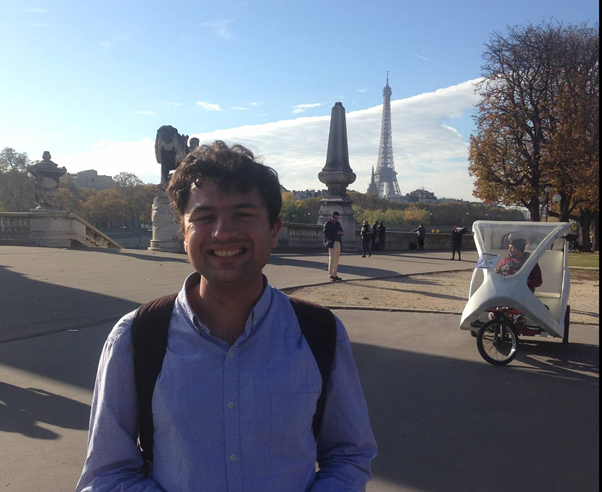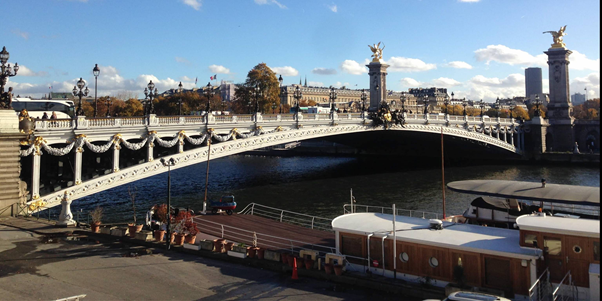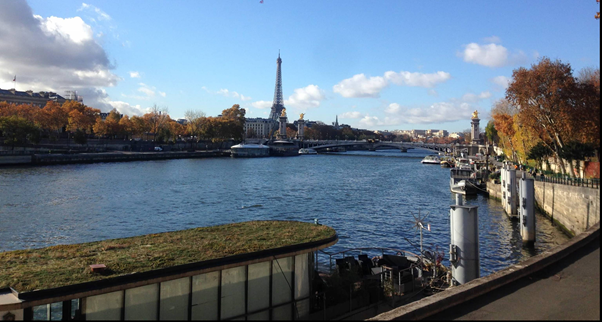Impact of language learning

Life After Year 12: Working in Paris for 7 Months
One of the best parts of studying a Language Other Than English (LOTE) were the overseas assistants who would come in to help us with our speaking skills. After 6 years of French at Koonung, each year with a different French assistant from a different part of France, I decided I wanted to go to Paris to work as an English language assistant. I wanted to help French students become as fluent as possible and teach them all about life on the other side of the world. Of course, I also wanted to put my French skills to the test by living in France for 7 months. From primary school to university I’d only been speaking French in the classroom, so after graduating from the University of Melbourne in July 2018, with a Diploma in French and a Bachelor of Arts in Creative Writing and Linguistics, I was definitely ready to take my language skills into the real world.
Already having experience in education, as a mentor to autistic students, inspired me to work in schools overseas. Thankfully I’d already had a taste of living in France from going on the 2012 Koonung French trip, which gave me the confidence to live there by myself. Travelling with school had exposed me to different accents and social environments, staying with a French family, sitting in French classrooms and ordering food in French for the first time. Going by myself meant that I had to constantly apply all of my foreign language skills, whether I was feeling healthy or sick, energetic or tired, cheerful or grumpy, and whether I was talking to students, colleagues, supervisors, waiters, emergency services, strangers, ushers, bus drivers, ticket inspectors, landlords, secretaries, bankers or new friends. So many people dream of living in Paris, for many different reasons, but it takes a lot of work to get there.
There’s so much to learn about how the city operates. My first month there was a pretty brutal crash course, not just in Parisian life but in living far away from my friends and family back home in Australia. It was also my time to be running around like a puppy dog enjoying all the museums, cafes, boulevards, restaurants, theatres and the like that I certainly didn’t have back home. Once I was all settled and comfortable in Paris, I started venturing out to the French countryside and visiting nearby big cities like London, Amsterdam, Brussels and Rome.
None of this would have been possible without all those years studying and practicing my French in the classroom before doing my best to perfect it in France. The Ministry of Education were looking for native English-speaking assistants who could also speak French. If I only spoke English, I would have completely missed out on the experience of teaching in a primary school and getting to know the youngest generation of French people, and even older, more advanced English students are much more open to learning English if they hear that you’re also learning French. Parisians wouldn’t always show it, but I could tell they appreciated speaking to an Australian who could speak French. Even if I couldn’t speak it perfectly and they could tell that I was a foreigner, it was certainly better than giving up and just speaking in English to them. You can definitely see a different side to someone when you can converse with them in their native language. You also experience a place in a completely different way when you can read the signs, understand the loudspeaker announcements and enjoy the local entertainment without relying on subtitles and translations. My next big challenge will be going back to France to lecture in English at a university and completing a thesis in psycholinguistics.
Studying French at school has given me a whole new world of freedom and opportunity that I never would have had otherwise.
Christian Tsoutsouvas
Year 12, 2013




